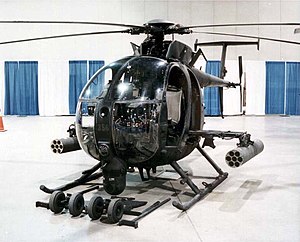 arlier request to buy 36 U.S. F-16 fighters. When told that it would take at least five years to train Iraqi pilots and ground crews to effectively use and maintain such aircraft, the Iraqis responded that they understood, and wanted to do whatever it takes to build an effective air force. They know, even then, there will probably be problems.
arlier request to buy 36 U.S. F-16 fighters. When told that it would take at least five years to train Iraqi pilots and ground crews to effectively use and maintain such aircraft, the Iraqis responded that they understood, and wanted to do whatever it takes to build an effective air force. They know, even then, there will probably be problems.
The historical experience has been that, in Arab countries, buying such high tech warplanes, usually run into personnel problems. Pilots are often selected more for their loyalty to the government, than for their flying skills. Ground crew jobs pay well, and are sometimes given out at gifts to loyal supporters of whoever is running the government at the moment. As a result, the high-tech aircraft tend to be flown by substandard pilots, and not available for operations (because of poor maintenance) as much as in Western air forces.
The Iraqis want to deal with those problems. The old Iraqi Air Force suffered under Saddam, with pilots selected for loyalty more than competence, and readiness compromised by corruption and inept administration. The Iraqis have noted how these traditional methods have created second and third rate air forces. So they want to try and be diligent students. While Americans, and some Iraqis, see all this as an attempt to better deal with Iran, even more Iraqis are willing to do whatever it takes to create an air force that can do some damage to Israel.
 Seen above is an AH-6 Helicopter
The Iraqis also want to discuss the purchase of 24 armed Bell 406 and 24 AH-6 helicopters. The Iraqis have heard about the success of the Bell 406 (on which the U.S. Army OH-58 is based) in Saudi service. The Iraqis want the AH-6 because they have seen it in use by U.S. SOCOM (Special Operations Command). The AH-6 is also derived from the Bell 406. Iraq is also interested in the new C-130J transport, which is performing very well in U.S. service, and with several other countries.
Seen above is an AH-6 Helicopter
The Iraqis also want to discuss the purchase of 24 armed Bell 406 and 24 AH-6 helicopters. The Iraqis have heard about the success of the Bell 406 (on which the U.S. Army OH-58 is based) in Saudi service. The Iraqis want the AH-6 because they have seen it in use by U.S. SOCOM (Special Operations Command). The AH-6 is also derived from the Bell 406. Iraq is also interested in the new C-130J transport, which is performing very well in U.S. service, and with several other countries. 

















No comments:
Post a Comment